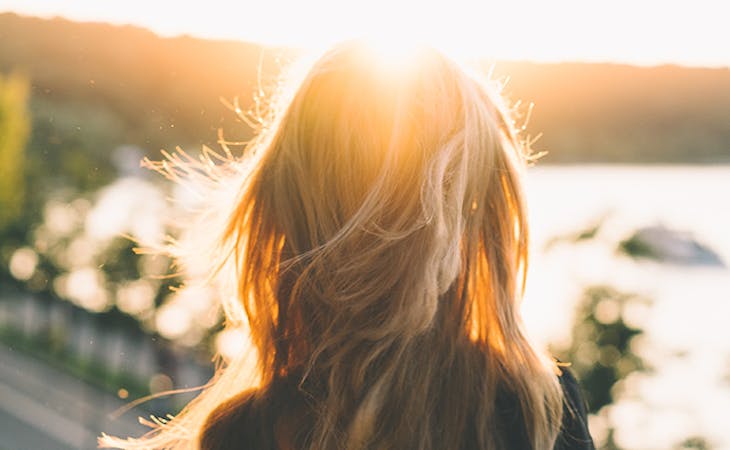Summer’s longer days can tempt you to stay up past your usual bedtime. Since for most of us, morning start times don’t change with the seasons, late summer nights can add up to a substantial sleep debt as you get far less rest than you need to function at your best.
The good news is, you can use summer’s extra sunshine to keep your body’s natural rhythms in sync and get the right amount of shut-eye.
The connection between sunshine and sleep
“Summer doesn’t have to be unfriendly to sleep,” writes clinical psychologist and sleep disorder specialist Michael J. Breus, PhD. “If you follow a few simple strategies, you can not only protect your sleep this summer but actually arrive at Labor Day better rested than you were in June.”
It may at first seem counterintuitive that spending time in the bright sunshine will help you sleep better at night. But research shows that exposure to natural light, particularly in the morning, is in fact linked to better sleep—and lower levels of stress.“This is true year-round, but it’s never easier to get consistent exposure to morning sunlight than during the summer months,” notes Breus.
It’s good for kids too. “Getting them outdoors for a first-thing-in-the-morning dose of sun can help make them more ready to fall asleep at bedtime,” Breus explains. “That’s a family-wide sleep win.”
You might start to think of the sun as Mother Nature’s medicine chest in the sky when you consider its many benefits.
Basking in the sunshine is the most effective way to get vitamin D, which is necessary for keeping your bones, immune system, eyes, and metabolism in tip-top condition. Sunshine also boosts serotonin, the brain’s “happy hormone,” which can lift your mood.
Serotonin, in turn, is a precursor of melatonin (a.k.a. the “sleep hormone”), meaning that after the sunshine stimulates your body’s production of serotonin in the morning, it will be converted into melatonin that helps you sleep that night. Studies suggest that without a solid daily dose of sunshine, you don’t produce optimal levels of melatonin.
Related: How to sleep cool this summer—and save money on your energy bill
How to get more sunshine for better sleep
One of the best ways to keep your circadian rhythm regulated and your sleep schedule on track is to get sun exposure in the morning. A study published in the journal Holistic Nursing Practice found that participants who were exposed to the sun between the hours of 8 and 10 a.m. for five days had improved sleep quality.
Because this works only if your skin is directly exposed to the sun, you’ll want to skip the sunscreen. That means you should limit the amount of time you spend outside to what your particular skin tone and type can tolerate—five to 30 minutes, tops.
According to a study published in the journal Science of the Total Environment, you can get the recommended daily dose of vitamin D (600 international units, also known as IU, for adults up to age 70 and 800 IU for adults over age 70) in just seven minutes during July. A walk around the block before heading to the office could feasibly get the job done.
Another way to reap the sleep benefits of sunshine this season? Go camping. Researchers at the University of Colorado, Boulder, have found that a weekend-long camping outing—with only sunshine by day and firelight by night—can reset one’s internal clock and elevate melatonin production.
One thing you want to avoid, though, is overexposure to artificial light at night. “Summer is an extra-important time to limit the additional light sources you’re exposed to at night,” says Breus. The extended daylight this time of year can lead to a delay in melatonin production and in turn make it harder to fall asleep, and adding artificial light—such as the blue light emitted from your phone—into the mix too close to bedtime can exacerbate this problem.
The National Sleep Foundation recommends keeping your phone away from you while you sleep and steering clear of all artificially lit screens immediately before you hit the sheets—good habits to practice year-round.
Did you know that hitting the gym in the a.m. can also help you snooze better? Here, learn more about the sleep benefits of morning workouts.




